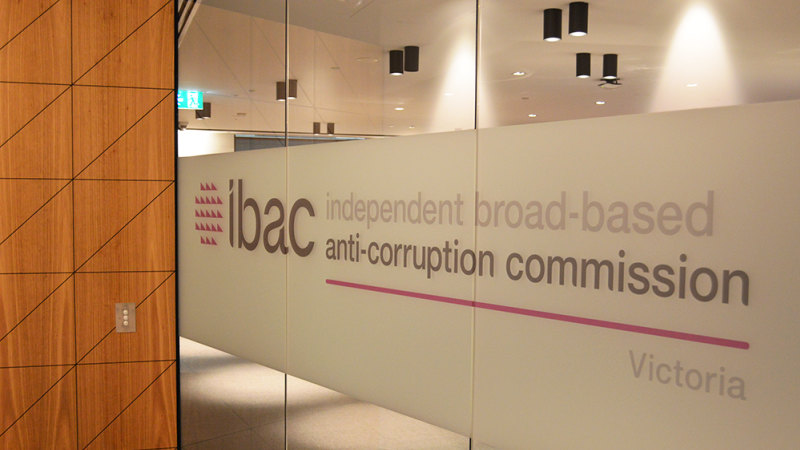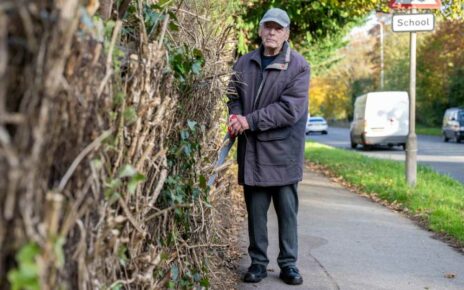Save articles for later
Add articles to your saved list and come back to them any time.
A new head of Victoria’s anti-corruption watchdog has been chosen amid state opposition concerns about whether she has the experience and seniority to tackle public sector wrongdoing and to stand up to an entrenched Labor government.
The Allan government has selected Victoria Elliott to head the Independent Broad-based Anti-corruption Commission. The post has a salary of about $500,000.
Former IBAC commissioner Robert Redlich left the role in December.Credit: AAP
Not well known in political and legal circles, Elliott is a lawyer and current deputy head of the small and secretive Office of the Public Interest Monitor. Between 2013 and 2016 she was a managing lawyer at IBAC, and before that she worked with the now defunct Office of Police Integrity. She does not have judicial experience; nor is she a barrister.
The IBAC Act says an eligible person must be a current or former judge in the High, Federal or Supreme courts, or at least qualified to be so. Most familiar with the integrity terrain agree that legal qualifications and deep experience in investigations, examination and the conduct of public hearings are prerequisites for the IBAC top job.
Elliott has been confidentially endorsed by a majority on parliament’s integrity and oversight committee, including Labor, Greens and Legalise Cannabis MPs, but not by Coalition members. The committee has a right of veto over the appointment.
She was the government’s preferred choice from a shortlist of candidates. Among those also considered for the job were acting IBAC commissioner Stephen Farrow and deputy commissioner Kylie Kilgour.
Redlich and former premier Daniel Andrews.Credit: The Age
The integrity agency Elliott currently helps oversee reviews and vets the use of evidence collection methods such as warrants and phone taps used by agencies including Victoria Police and IBAC.
She was first appointed for a three-year term in 2019 by then special minister of state Gavin Jennings. A government press release at the time said she had “extensive experience working in law enforcement and investigative agencies”.
“Victoria Elliott has an impressive track record in public service, particularly in areas of integrity and accountability,” Jennings said at the time.
“The community can have full confidence in her appointment as deputy public interest monitor – I’m sure she will safeguard the public interest when integrity and law enforcement bodies seek to use covert investigative and coercive powers.”
Elliott will replace former IBAC commissioner Robert Redlich, who ended his fixed five-year term in December in an acrimonious relationship with the government – and former premier Daniel Andrews in particular – over his public criticism of rampant “soft” corruption in Spring Street.
The public tension between the government and Redlich was widely viewed as a disincentive for senior legal figures, like former judges, to put their name forward for the role as commissioner, and has arguably made the role tougher for his successor.
Insiders from the legal community, and the Labor and Liberal camps, have described the position post-Redlich as a poisoned chalice. The Age is aware of legal figures who were interested in the IBAC job but did not apply. One described the position as “toxic”.
After its establishment by the Baillieu Coalition government, IBAC’s first commissioner, from 2013 to 2017, was barrister Stephen O’Bryan, KC.
IBAC acting commissioner Stephen Farrow and deputy commissioner David Wolf Credit: Wayne Taylor
A Coalition source said the opposition was concerned the endorsed candidate might lack the experience of a judge or senior barrister and that she would need to prove she was a “corruption-buster and not just a good administrator”.
Towards the end of his five-year term as IBAC commissioner, Redlich was outspoken in his critique of the government and what he described as “fundamental institutional failings”.
He repeatedly called for reform, including for funding of IBAC to be removed from the discretion of the government and given to the state parliament, and for widening of the watchdog’s powers.
In March, it was revealed he wrote to parliament in his final days as commissioner alleging that Labor MPs had asked an independent auditor to “dig up dirt” on IBAC and that this may have been revenge for ongoing investigations into the government.
Redlich sent the letter to the lower house Speaker and upper house president, apparently anticipating it would be distributed to all MPs – but it wasn’t.
When the letter surfaced, the opposition proposed to move a motion in parliament for a special inquiry into the claims detailed in Redlich’s letter.
But the government averted the potentially damaging inquiry by doing a deal with the Greens and Legalise Cannabis to forfeit control of the integrity committee and allow it to be chaired by a non-government MP, a key recommendation in the Redlich letter. The committee is now chaired by Greens MP Tim Read, who is the party’s integrity spokesman.
Read refused to comment for this story.
The Age has approached the government for comment, and tried to contact Elliott.
Get the day’s breaking news, entertainment ideas and a long read to enjoy. Sign up to receive our Evening Edition newsletter.
Most Viewed in Politics
From our partners
Source: Read Full Article




